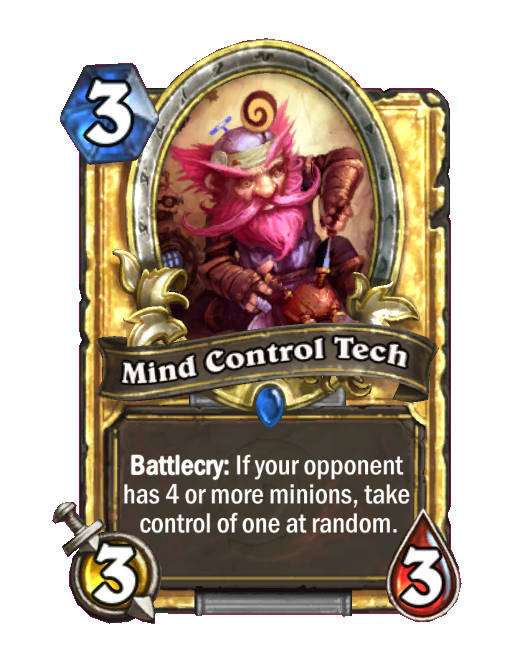All Categories • Continuing Committee • Organized Play • Rules Committee • Deck Designs • Virtual Expansions
Card Extras • Special Events • Tournament Reports • Everything Else • Spotlight Series • Contests
Strategy Articles
Lose Less
by Lucas Thompson, Ambassador
13th March 2018
For years, Trek CCGs were my only CCGs. Second Edition was the only game I'd played competitively at all, but still I'd noticed that cards that require you to solve a mission for them to be useful weren't very good. Even ones like Deliver Prisoners, whose skill and attribute requirements alone are good enough for it to see play, rarely makes it into the capture decks it was made for. The problem is that, if you're doing well enough to actually solve missions, you've probably got everything you need up and running anyways. The cost reduction won't help you win the games you're losing, it'll only make you run away with games you're already winning even more.
It wasn't until I started playing Hearthstone that I found out that there's a term for this type of card. In order to learn how to do well in arena, I had to take a pretty deep dive on game mechanics, especially considering I'd never played Magic seriously either. I learned all about card advantage, efficient trading, tempo, that sort of thing. Now, many concepts from Hearthstone don't translate directly to Second Edition - being able to spend counters to draw (rather than being limited to a single draw) puts concepts like card advantage in a very different light. But the idea of cards being "win more" translates pretty cleanly.
Let's take a look at a couple of hearthstone cards. Take, for example, Raid Leader. The basic stats you'd expect for a 3 cost minion without text are a 3 and a 4, so he's way behind the curve with only a pair of 2s. But to a new player, that ability looks pretty powerful. Just get a bunch of stuff on the board, and he'll generate way more in total stats on the board than just that base 2/2. Well, that's only if you're already ahead. If you've got enough minions on board already for his ability to beat a 3 mana 3/4, you're probably already significantly ahead in the game. And if you're behind, your opponent is going to be keeping your board clear, and, well, he won't help you at all there.
Now let's take a look at Mind Control Tech. He's only one point behind the curve for his stats, so that's already better. Unlike Raid Leader, his ability won't do a thing if you're ahead, since your opponent is rarely going to have 4 minions on board if you're ahead. But if you're behind, he can really swing the game back around, and isn't that really the time that you need the help?
Trek has a lot of Raid Leaders. There's even a whole affiliation (Starfleet) that is built on getting better if you solve the first space mission, and giving bonuses for being ahead.
 Cardassians and Ferengi love to check and see if they have more points than the opponent, and then get bonuses from that. I thought it might be fun to add some more cards to the game that get better when you're behind, that improve based on how well the opponent is doing. Cards to give the Trial dilemmas some company.
Cardassians and Ferengi love to check and see if they have more points than the opponent, and then get bonuses from that. I thought it might be fun to add some more cards to the game that get better when you're behind, that improve based on how well the opponent is doing. Cards to give the Trial dilemmas some company.
So here we are with Qatai. He's a pretty average personnel at 5-6-6, command icon, and 6 skills is pretty average for 3 cost. And if your opponent isn't doing well, he'll stay that way. But once the opponent starts racking up missions, once the situation is dire and the odds are against you, he steps up. And isn't that the time when you need the help? He won't see much play in all-out speed decks at 3 cost, but those are decks that want to get out ahead early anyways. His bread-and-butter will be slower, more mid-range or controlling decks that want to start pushing their advantage later on.
One last tidbit about him - for most of the design process, Qatai didn't have a name. We knew we wanted someone with roughly these skills, for that cost, and that ability. Once the set was largely finalized from a design perspective, it got passed along to creative, and they had a pretty blank slate to work with. That's always fun for me, and I couldn't wait to see what they came up with. Now, I initially had to look Qatai up, but I love the choice they made. I'd quite forgotten about him, but he's a character I liked in a episode of Voyager that I liked, and he's never appeared in either edition of the game. Seeing what the creative team comes up with for the cards we leave very open is always a treat.
Discuss this article in this thread.
Back to Archive index












